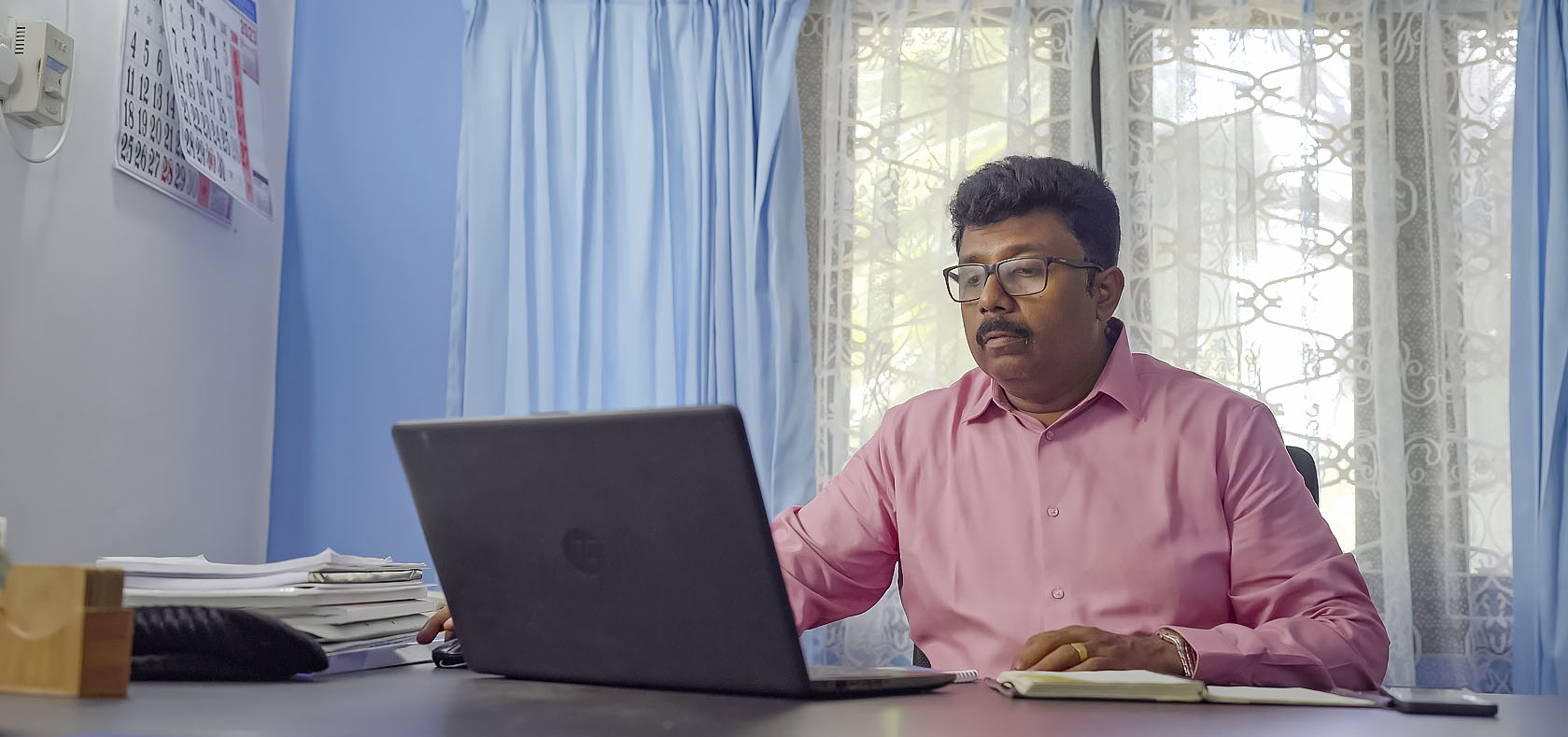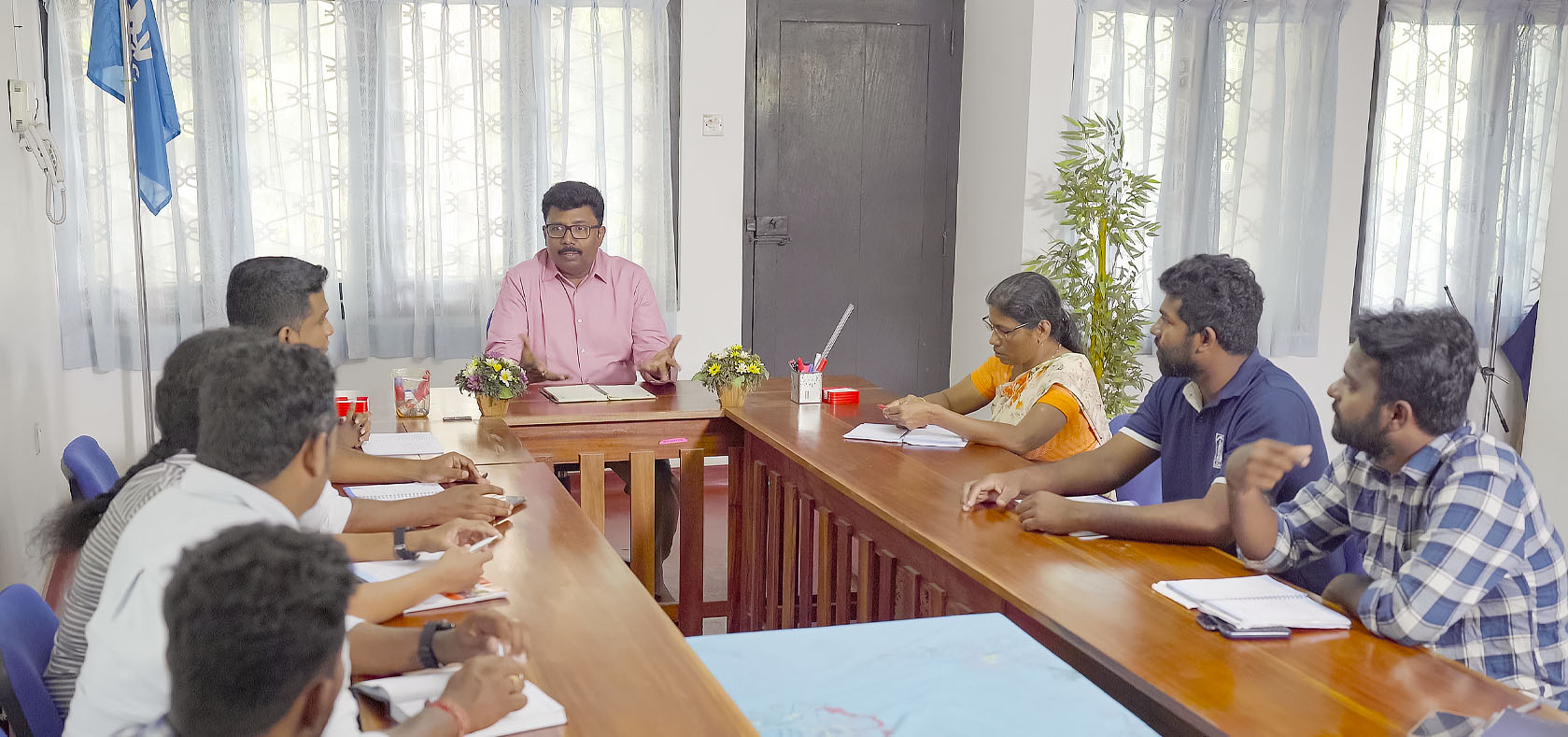A beacon of hope for survivors of violence in the Jaffna Peninsula
Date:
Author: Zafran Packeerally
* Names have been changed to protect the identity of survivors.
"Even though my husband was wealthy, he treated me like a servant. He was addicted to drugs, and he beat me often. It was a living hell for me”, says Nithya* her voice quivering as she recounts her harrowing past.
Nithya is a 38-year-old mother of three from Nallur Jaffna in the Northern Province of Sri Lanka. While Nithya had been married for over two decades, her marriage was not officially registered, leaving her vulnerable to abuse. “I wasn’t even allowed to go to my parents' funeral. He would unleash his anger upon me when he was drunk. I felt utterly helpless,” she adds.
One day, her husband's violence escalated to such an extent that she ended up in the hospital with severe injuries, including multiple lacerations. Hospital officials, recognizing the signs of abuse, took the necessary legal steps to ensure her safety, and local authorities admitted her to the Jaffna Social Action Centre (JSAC) – a non-governmental organization that supports vulnerable communities including women and children.
At the helm of JSAC is 53-year-old Nadarajah Sukirtharaj, an advocate for women's rights and the Head of the organization.

“One of the primary reasons that women seek refuge in our safe houses is because of domestic violence,” Sukirtharaj added. As many women who suffer from violence in their own homes lack the knowledge and resources to escape abusive situations, the center’s interventions over the last two decades have been invaluable.
“When we first started JSAC, our community was largely unaware of the significance of safe houses for survivors of violence. To address this, we initiated several awareness programmes and even established women’s groups in villages to spread the word. We have seen a shift in perception since then.”
Sukirtharaj and his team at JSAC understand that survivors of gender-based violence require more than just physical shelter. They provide essential psychosocial support, educate women about their rights, and guide them on how to escape violence at home.

Recounting her time at JSAC, Nithya notes that while the organization serves as a temporary shelter for women and children, it also offers tremendous support to those facing domestic violence. “During my stay here, I acquired valuable life skills. I now live with a relative and earn a livelihood by making food items. I am now self-sufficient,” Nithya affirms, her voice carrying a newfound strength.
Founded in 2003, JSAC operates across eight districts in Sri Lanka, providing vital support to hundreds of women like Nithya. In 2020 alone, 138 women survivors of violence received support.
“It’s no secret that this endeavour is fraught with difficulties. The prevailing economic situation in our country has also made it increasingly difficult to secure financial support from the state,” says Sukirtharaj.
UN Women’s project ‘Empowering Women in Crisis’ (February 2023 – January 2024) funded by the Government of Japan, provides emergency relief and support to women’s shelters most affected by the socio-economic crisis in Sri Lanka.
“Reports on the ground reflect that women and girls continue to be unsafe in their own homes. Ensuring that safe houses have the resources to function effectively and raising awareness about such services will help protect women and girls fleeing abusive circumstances,” said Ramaaya Salgado, Head of Office at UN Women Sri Lanka.
Through the project, UN Women is supporting eleven women’s shelters around the country, which includes safe houses run by JSAC. “I must express my deep appreciation for the invaluable support provided by UN Women. While we do receive assistance from various state and private organizations, running our safe house has presented us with several formidable challenges, particularly concerning the provision of essential resources like food, clothing, and other items”.
JSAC stands as a symbol of resilience, hope, and transformation in the face of adversity. In the quiet corners of the Jaffna Peninsula, it serves as a sanctuary where the shattered spirits of women and children can heal, regain control over their lives, and begin anew.